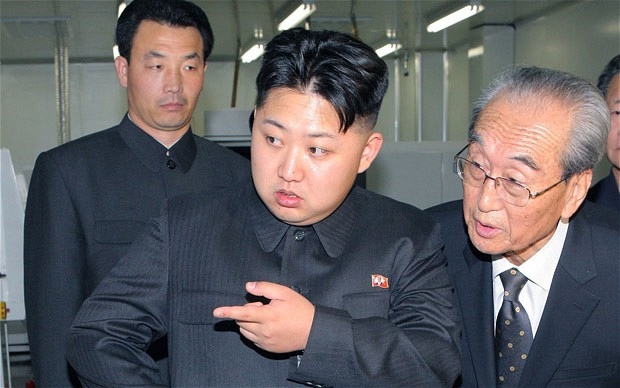
Advertisement
A soldier who defected from the Democratic People’s Republic of Korea to the communist regime’s southern neighbor has been identified as having total immunity to anthrax, possibly suggesting that North Korea could be planning to utilize the deadly bacteria in an upcoming chemical weapons attack.
According to reports, the unidentified individual had to have either been exposed to anthrax or vaccinated against it while living under dictator Kim Jong-un, as his body recently tested positive for anthrax antibodies.
This latest discovery has generated renewed fears that North Korea could be planning to attack one of its neighbors – the most likely candidate being American ally South Korea. If North Korea’s own soldiers are immune to anthrax, as appears to be the case, then chances are the rogue entity is conspiring to go after its enemies who aren’t.
Earlier evidence pointing towards this scenario emerged back in 2015 when analysts found that the Pyongyang Biological Technology Research Institute, which is run by the Korean People’s Army Unit 810, possessed dual-use equipment capable of producing pesticides and something else. This something else, reports suggested, could be biological weapons.
Just last month, it was further claimed by officials in Pyongyang that North Korea is now actively testing biological weapons, the aim of which is to lead anthrax-laden warheads onto its intercontinental ballistic missiles. If this is the case, then even the United States is now at risk of a possible biological attack.

As reported by Japan’s Asahi newspaper, U.S. officials were apparently aware that these tests were taking place. It was understood that North Korea was in the process of evaluating whether or not anthrax bacteria was capable of surviving high temperatures upon re-entry into the atmosphere from space.
However, North Korea itself denied all of this. And ironically, the regime promised to “take revenge” on the U.S. simply for making this insinuation (with anthrax?).
North Korea says actions taken against it represent ‘act of war’
Meanwhile in Seoul, South Korean officials are trying to figure out how to respond to this potential threat. The South Korean military has yet to deploy an anthrax vaccine, and South Korean defense ministry spokesman Choi Hyun Soo says that it probably won’t be released until at least the end of 2019.
These mounting tensions don’t bode well for world peace, as the warning signs of looming world war continue to escalate. The United Nations Security Council recently passed new sanctions on North Korea, which the regime has officially declared to be an “act of war.”
“We define this ‘sanctions resolution’ rigged up by the U.S. and its followers as a grave infringement upon the sovereignty of our Republic, as an act of war violating peace and stability in the Korean peninsula and the region and categorically reject the ‘resolution,'” reads a statement issued by the KCNA news agency.
What the Chinese ally plans to do from here remains to be seen. Should it decide to stoke the flames further, the U.S. and its allies could decide to take things up a notch.
As far as anthrax is concerned, this infection caused by the Bacillus anthracis bacterium can be contracted a number of ways, including through the skin, lungs, and intestines, as well as intravenously.
Symptoms of infection include raised spots or blisters on the skin, fever and chills, shortness of breath, chest pains, and shock. Contracting anthrax from an airborne source is the most deadly type of exposure. Unless treated immediately with antibiotics, those who become infected can die within a matter of just a few days.
Beware of false hope promised by anthrax vaccines, however. These concoctions are often deadly in and of themselves, their toxic ingredients increasing one’s risk of developing Gulf War Syndrome and other vaccine-induced illness. Follow Bioterrorism.news for more coverage of biological warfare agents.
Sources for this article include:
Submit a correction >>
This article may contain statements that reflect the opinion of the author
Advertisement
Advertisements















